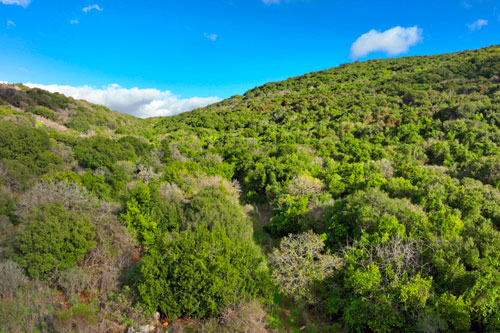05 May Don’t Plant Any Tree in Israel

For decades, Jews in the diaspora have been planting trees in Israel. This was done with the best of intentions. However, Israel’s leading environmental experts will tell you that you should not plant any tree in Israel: you should plant the right tree, in the right place, at the right time.
Traditionally what’s been planted in Israel has been pine trees in open areas. These do more harm than good. It’s not that Israel doesn’t need trees. It does, the planet does; they store carbon dioxide and provide shade to lower temperatures in a warming world.
But Israel doesn’t need trees in naturally unforested open spaces, it needs them in Israel’s urban heat islands. Ecosystems with sparse tree cover are among the most threatened ecosystems in the country.
Planting trees in these sensitive ecosystems alters nature’s balance, having a negative effect on Israel’s unique biodiversity and on the ecological function of the region.
By actively planting the wrong trees in the wrong locations, Israel is also acting against its international commitments to protect biodiversity.
Further, the negative impacts of these planted forests are not restricted to the planted area; the planted pine forests have harmful effects on nearby natural areas, including the spread of toxic pine needles, invasive plants, and species into areas they shouldn’t be. Plus, planted forests in these open areas do not contribute to the positive balance of climate change mitigation.
The good news for people who love Israel and the environment is that Israel can be a beacon of environmental hope for the world.
Since Israel is one of the most densely populated country in the Western World, experiencing significant immigration each year, Israel needs to be innovative to ensure its ecosystems are protected… its coastline and beaches are safeguarded… and there’s enough water to drink and irrigate crops.
At the Society for Nature Israel (SPNI), Israel’s leading environmental organization, we have been protecting Israel’s natural resources and environment for 60 years. Also, since the environment knows no national borders, SPNI regularly shares innovations and insights with neighboring countries in peaceful cooperation.
Plus, just like Israel has educated the world about drip irrigation, desalinization, and Covid vaccines, SPNI is working to ensure that what it learns in its uniquely dense, dry, and ecologically diverse country is shared and ideally applied in urban, suburban, and wildlife environments in countries far and wide.






